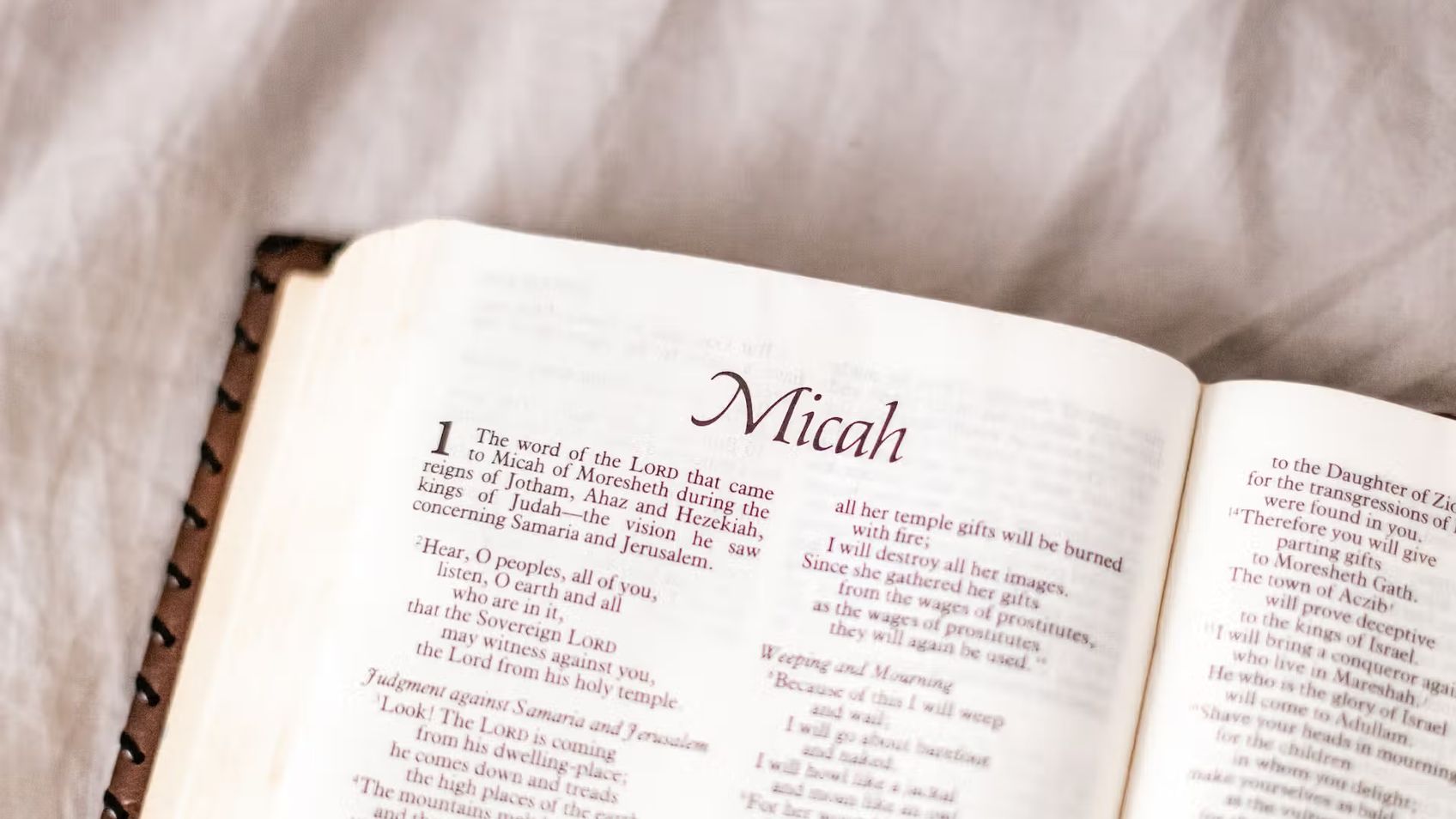Micah (Full Book)

MicahSteve Gregg
In Micah, a book by Steve Gregg, the prophet Micah delivers a series of oracles that foretell God's judgment on Israel for their transgressions against His laws. Micah also prophesizes the birthplace of the Messiah, who will come to execute vengeance on those who do not listen to the Gospel. The book offers a mixture of both destruction and hope, ultimately pointing towards the restoration of the remnant of Israel and the establishment of God's kingdom on earth.
Series by Steve Gregg

Joshua
Steve Gregg's 13-part series on the book of Joshua provides insightful analysis and application of key themes including spiritual warfare, obedience t

Zephaniah
Experience the prophetic words of Zephaniah, written in 612 B.C., as Steve Gregg vividly brings to life the impending judgement, destruction, and hope

Wisdom Literature
In this four-part series, Steve Gregg explores the wisdom literature of the Bible, emphasizing the importance of godly behavior and understanding the

Sermon on the Mount
Steve Gregg's 14-part series on the Sermon on the Mount deepens the listener's understanding of the Beatitudes and other teachings in Matthew 5-7, emp

Ephesians
In this 10-part series, Steve Gregg provides verse by verse teachings and insights through the book of Ephesians, emphasizing themes such as submissio

Habakkuk
In his series "Habakkuk," Steve Gregg delves into the biblical book of Habakkuk, addressing the prophet's questions about God's actions during a troub

Galatians
In this six-part series, Steve Gregg provides verse-by-verse commentary on the book of Galatians, discussing topics such as true obedience, faith vers

Church History
Steve Gregg gives a comprehensive overview of church history from the time of the Apostles to the modern day, covering important figures, events, move

Ezekiel
Discover the profound messages of the biblical book of Ezekiel as Steve Gregg provides insightful interpretations and analysis on its themes, propheti

Revelation
In this 19-part series, Steve Gregg offers a verse-by-verse analysis of the book of Revelation, discussing topics such as heavenly worship, the renewa
More on OpenTheo

Sense, Sensibility, and Adam Smith with Jan Van Vliet
Life and Books and Everything
February 16, 2026
This year is a special anniversary for the United States as Americans celebrate 250 years of independence. But 1776 was an important year in more ways

Why Is It Necessary to Believe Jesus Is God?
#STRask
February 19, 2026
Questions about why it’s necessary to believe Jesus is God, whether belief in the Trinity is required for salvation, and why one has to believe in the

E. Calvin Beisner: Climate and Energy Policy
Knight & Rose Show
January 4, 2026
Wintery Knight and Desert Rose welcome Dr. E. Calvin Beisner to discuss climate and energy policy. They explore Biblical dominion and stewardship, con

Can You Provide Verifiable, Non-Religious Evidence That a Supernatural Jesus Existed?
#STRask
November 10, 2025
Question about providing verifiable, non-religious evidence that a supernatural Jesus existed.
* I am an atheist and militantly anti-god-belief. Ho

How Would You Convince Someone That Evil Exists?
#STRask
November 17, 2025
Questions about how to convince someone that evil exists, whether Charlie Kirk’s murder was part of God’s plan, whether that would mean the murderer d

Did God Create Us So He Wouldn’t Be Alone?
#STRask
November 3, 2025
Questions about whether God created us so he wouldn’t be alone, what he had before us, and a comparison between the Muslim view of God and the Christi

Why Do We Say Someone Was Saved on a Particular Date If It Was Part of an Eternal Plan?
#STRask
November 24, 2025
Questions about why we say someone was saved on a particular date if it was part of an eternal plan, the Roman Catholic view of the gospel vs. the Bib

How Can We Know Who Is Teaching the Same Gospel Paul Taught?
#STRask
February 16, 2026
Questions about how we can know who is teaching the same gospel Paul taught, and whether or not Jeremiah 1:5 supports the idea that we pre-existed in

Why Would Any Rational Person Have to Use Any Religious Book?
#STRask
December 8, 2025
Questions about why any rational person would have to use any religious book, whether apologetics would be redundant if there were actually a good, un

What Are Some Good Ways to Start a Conversation About God with Family Members?
#STRask
October 30, 2025
Questions about how to start a conversation about God with non-Christian family members, how to keep from becoming emotional when discussing faith iss

Why Are So Many Christians Condemning LGB People Just Because of How They Love?
#STRask
January 15, 2026
Questions about Christians condemning LGB people just because of how they love, how God can expect someone to be celibate when others are free to marr

How Can I Explain Modesty to My Daughter?
#STRask
November 27, 2025
Questions about how to explain modesty to a nine-year-old in a way that won’t cause shame about her body, and when and how to tell a child about a pre

How Do You Justify Calling Jesus the Messiah?
#STRask
December 18, 2025
Questions about how one can justify calling Jesus the Messiah when he didn’t fulfill the Hebrew messianic prophecies, and whether the reason for the v

Is It a Sin to Feel Let Down by God?
#STRask
November 6, 2025
Questions about whether it’s a sin to feel let down by God and whether it would be easier to have a personal relationship with a rock than with a God

Are Demon Possessions and Exorcisms in the New Testament Literal?
#STRask
December 11, 2025
Questions about whether references to demon possessions and exorcisms in the New Testament are literal, how to talk to young children about ghosts, an
